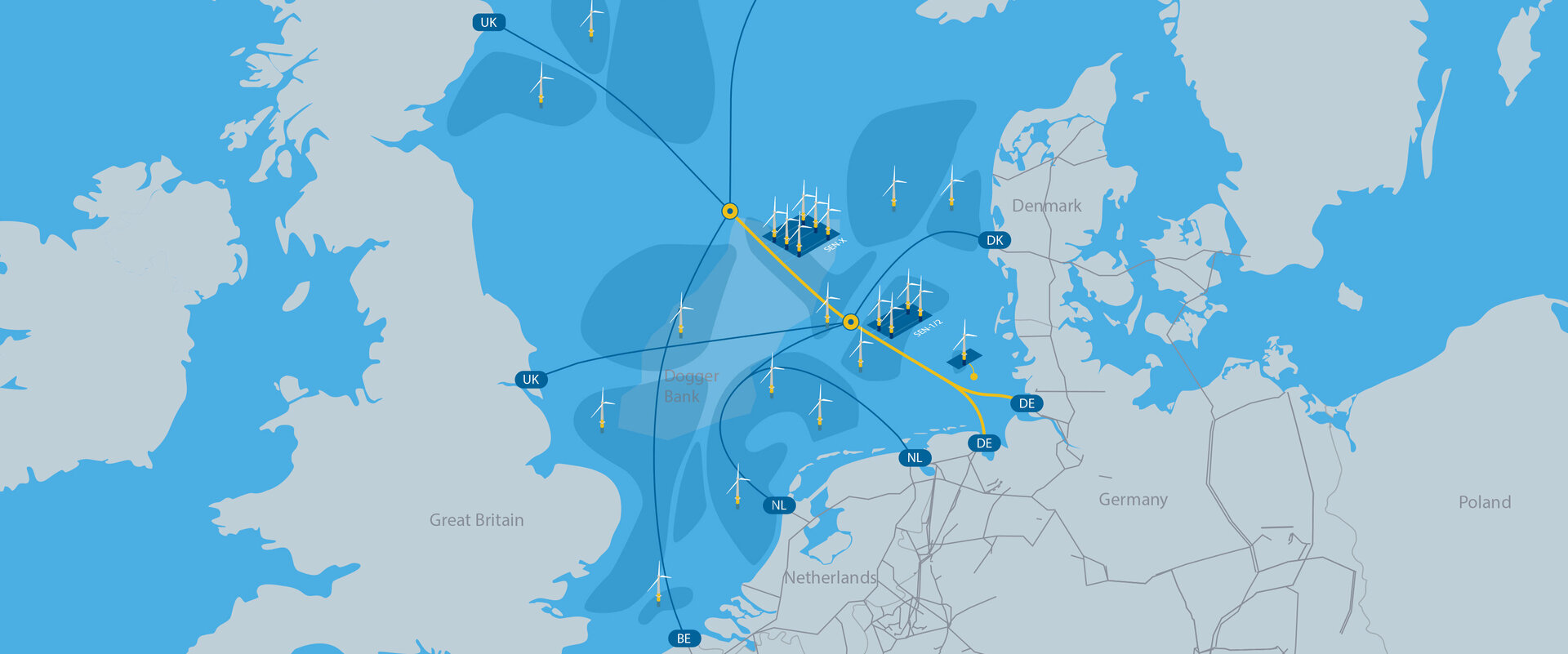Creation of a hydrogen infrastructure for the North Sea region. Increasing European energy independence.
Kassel/Brussels. The AquaDuctus hydrogen pipeline planned by GASCADE Gastransport GmbH (GASCADE) in the North Sea has today received state aid approval from the European Commission under the IPCEI hydrogen framework: "AquaDuctus will receive the green hydrogen produced in the North Sea and transport it to the German mainland. The offshore pipeline will also act as a hub for neighboring hydrogen infrastructures and create a link between European production and demand centers," says GASCADE Managing Director Christoph von dem Bussche, outlining the project approach.
"Today's decision in Brussels confirms our assessment that AquaDuctus is one of the important pipeline projects with the task of driving the European hydrogen market ramp-up. By providing the necessary infrastructure, we give potential hydrogen producers the certainty that they can make their investments in production plants," says AquaDuctus project manager Oliver Reimuth.
The first AquaDuctus project section, which has now been notified as an IPCEI, provides for the construction of an offshore pipeline approximately 200 kilometers long and an onshore pipeline approximately 100 kilometers long, the transport capacities of which are to be available for the SEN-1 hydrogen wind farm in particular from 2030.In order to meet the goal of creating a demand-oriented hydrogen infrastructure for north-western Europe, the entire German Exclusive Economic Zone is to be developed with the second offshore project section, which is also around 200 kilometers long.
"AquaDuctus is already part of the design of the German hydrogen core network and has also had the status of a "Project of Common Interest" (PCI) since November 2023. The IPCEI notification received today underlines and strengthens the European component of the AquaDuctus project, which will enable an offshore connection from Denmark, Norway, Belgium, the Netherlands and the UK with the second project phase," adds Reimuth.






